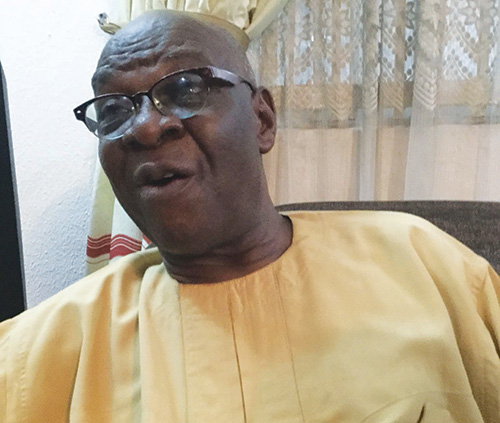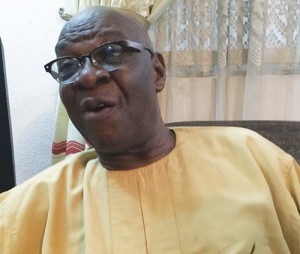•Describes power sector privatisation as hasty
Debate on the purported attempt by Nigeria to seek a loan from the International Monetary Fund (IMF) to revamp the economy during the Ibrahim Babangida junta was a mere academic exercise.
Nigeria did not seek loan from the Bretton Woods’ institution. Neither did it get any at the time, recalled former Finance Minister, Kalu Idika Kalu, who served under Babangida during the IMF debate in the 1980s.
Kalu, a development economist of international renown, made the disclosure in an interview with TheNiche at his home on Victoria Island, Lagos.
He also argued that power sector privatisation should have been delayed until power generation threshold would hit a point that it could withstand shocks.
Misinformation
He said reports that he authored the campaign for the IMF loan was in line with the misinformation and misunderstanding that characterised the topic.
“There was no loan on offer to Nigeria. There was no such thing as an IMF Loan on offer to Nigeria. I never talked about IMF loan because there was no loan on offer,” Kalu insisted.
The primary issue at the time, he narrated, was how to fix the economy, and it was after the decision had been taken on what to do that the question of funds came up.
“Possibly, it is only at that stage that you can say IMF financing could be a part of it because it is the cheapest fund and usually member countries would go and get whatever they can.”
IMF conditions
IMF loan is cheaper than those of the World Bank, African Development Bank (ADB), and European Union (EU).
Kalu explained, however, that the stringent conditions attached to IMF loan have nothing to do with the institution, but with how the economy can recover as condition for advice and possible funding.
“If they give you the advice and they don’t think you need the money, probably you have a way of getting the funds, they don’t need to give you any funds.”
The debate on the loan was poorly handled, Kalu said.
Privatisation
On privatisation, he faulted some of the conceptions and processes, but endorsed privatisation as a principle, especially in moving certain investments from the public sector to the private sector for profitability and service efficiency.
He noted that the first mistake by the authorities was that they misread the initiative as solely having to do with Nigerian entities.
“It doesn’t have to be. A Nigerian entity could be part of a consortium that could come and take over that erstwhile public sector and turn it around to be a very viable enterprise.”
Power sector
Kalu argued that the country should probably have waited a little bit longer before embarking on power privatisation.
“If we are doing what we are doing now when we are already at 9,000 or 10,000 megawatts, when we are able to meet the needs of the households and certain industrial sector, if there are mistakes, we won’t come to a situation where we are generating 1000, 1,500 megawatts or even less because we would already have moved it that far.”
He said moving the exercise forward would involve mobilising capital and personnel from even outside the country for the purpose.
Paris Club
Kalu also held on to his argument that Nigeria should not have gone for Paris Club debt relief, as it would have been better off applying the funds to address its problems of human, physical capacity, improving quality, growing industry, manpower and infrastructure.
Nigeria should have asked creditors for debt rescheduling, he said.












